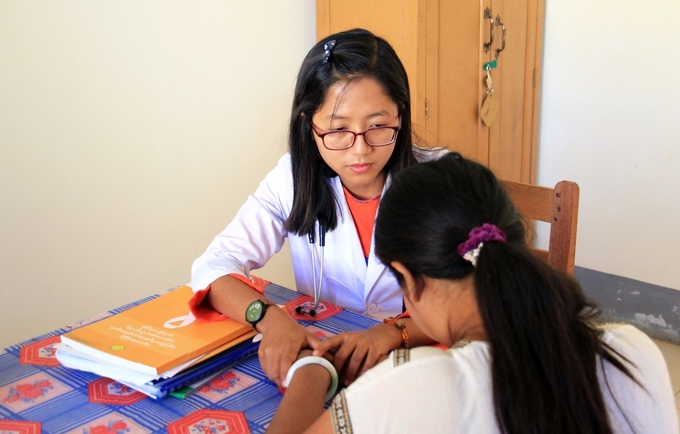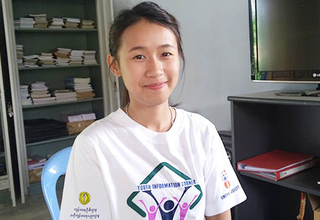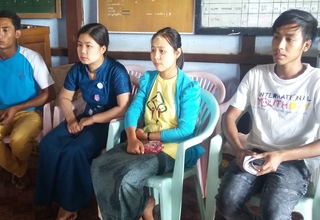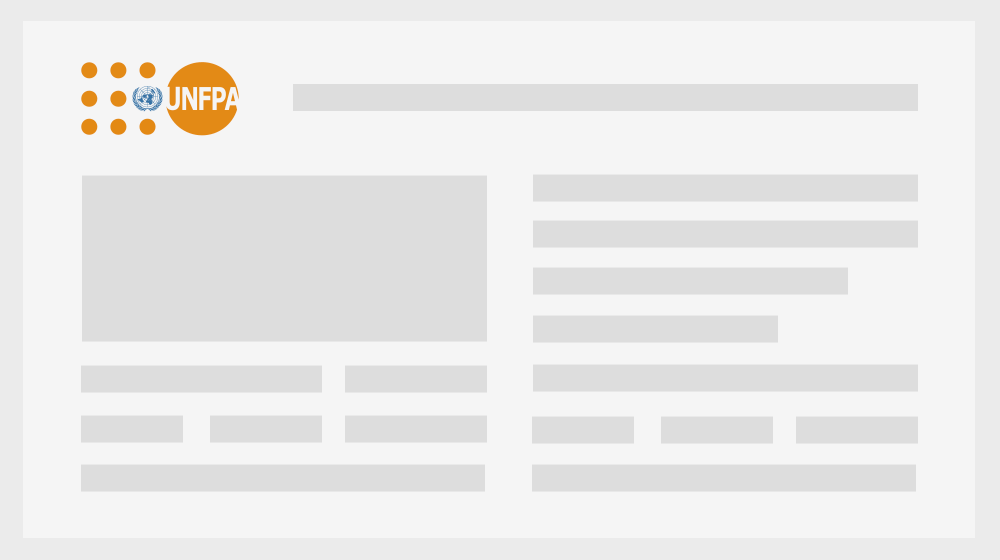MYITKYINA, Myanmar – “Over the years, so many physically and sexually abused women have come this hospital. I used to just treat their injuries. I didn’t support them emotionally, and I didn’t refer them to any social or legal support services. I didn’t realize that rape survivors must be offered emergency contraception and drugs to prevent HIV. I feel so sorry now for these women, thinking back.”
Pann Nu Ko Ko, 27, is the only doctor at the Aung Myin Thar station hospital in Myanmar’s Kachin State. She was always a dedicated doctor, but she had little knowledge about gender-based violence.
Women are denied rape treatment
In Myanmar, social acceptance of violence against women is widespread. Domestic violence is regarded as a private family matter. There is a strong culture of victim-blaming. Even very brutal sexual assaults, when women arrive at the hospital with heavy bleeding from deep tears in the vagina, are often compartmentalized as “accidents”.
On the other end of the spectrum, many health staff understand that a crime has been committed, and believe – incorrectly – that it is mandatory to report it to the police. This practice is so deep-rooted that staff often do so without the knowledge or consent of the patient. Even worse, women who do not want to file a complaint with the police are frequently denied treatment.
Guidelines specifically tailored to health staff
To turn the tide on how health staff respond to gender-based violence (GBV), UNFPA supports the roll-out of Myanmar’s first-ever GBV guidelines specifically tailored for healthcare providers. The guidelines are uniquely focused on the medical, emotional and legal needs of the patient.
The guidelines are currently being distributed together with an intensive training programme for both public and private health professionals, run jointly by UNFPA and Myanmar’s Ministry of Health and Sports. For doctor Pann Nu Ko Ko, the training programme led to a transformation of her professional and personal attitude to gender-based violence and to women who are subjected to it.
“Before the training, when women returned for care many times after relentless abuse by a husband, I couldn’t understand why they didn’t leave him. I felt impatient when women chose not to report perpetrators to the police”, says Pann Nu.
A coordinated effort on all fronts
“Now I see clearly that their trauma and suffering can be beyond our knowledge. There are complex reasons why women do not feel able to leave their abusive husbands, and why rape victims do not go to the police”, Pann Nu continues.
Indeed, women are scared to go to the police where they are routinely met with disregard and ignorance that adds to their distress, stigma and shame. The culture of impunity when it comes to crimes against women is pervasive, and few cases reach court or lead to conviction.
This is why UNFPA coordinates efforts on all fronts to improve the prevention and response to gender-based violence in Myanmar. The Women and Girls First initiative spans training and guidelines not only for health staff, but also for Myanmar’s police force, social workers and legal practitioners. It also encompasses advocacy with policy makers and law-makers, and campaigns to raise awareness about gender-based violence among the general public.
Clinical management of rape
An important part of the GBV guidelines for health staff is a protocol for the clinical management of rape, which is based on international standards set out by the World Health Organization. Critical components are:
- Examination and collection of forensic evidence.
- Treatment, including care of wounds and injuries; emergency contraception; prevention of HIV and other sexually transmitted infections, and tetanus.
- Supportive communication.
- Referral to services for psychosocial and financial support, legal assistance, and safety/security.
To provide supportive communication and emotional support is now a central part of the services we provide at the station hospital”, says Pann Nu. For while the training informs medical staff which local services survivors can be referred to, this is not always an option. For isolated or remote health centres, such Pann Nu’s station hospital, there are no psychosocial support services to refer patients to. Instead they must strive to provide this support themselves.
“I am haunted by it”
The most ground-breaking about the GBV guidelines is that they are rights-based, and they place the needs of the patient at the centre of the health response. This enables a survivor to decide for herself whether or not to receive treatment, or to be referred to police, legal and/or other services.
For Pann Nu, the training and guidelines have fundamentally changed her understanding and treatment of abused and assaulted women and girls.
“I keep thinking about a woman who came to me repeatedly over several months, each time with injuries inflicted by her husband. This was before my training. I kept telling her she should go to the police and put a stop to it. She never did. She just came back to me with new injuries. I was disappointed in her. I started to just treat her injuries, and I stopped engaging with her. I silently I blamed her for not being able to escape her situation.”
At this point, the woman stopped coming to the hospital for care.
“I wondered if her husband had stopped beating her. I was worried that he may have beaten her to death. But in my heart I knew she stopped coming for medical care because she no longer felt welcomed or respected. Now she had truly nowhere to go for help. I was haunted by it.”
Shortly after the training, Pann Nu saw the woman in her local market and approached her. She urged woman to come to the hospital when she needed help. Pann Nu cannot turn back time. But now she is ready for the future, and better prepared to care for women and girls who need a doctor that can respond holistically to GBV.
UNFPA’s support for the GBV guidelines and training for health staff is funded through the Women and Girls First Programme with support from Australia, Finland, Italy and Sweden, and with support from the Myanmar Humanitarian Fund.




